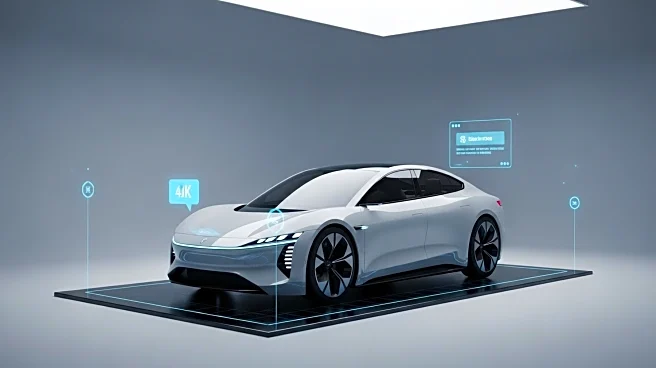What's Happening?
Polestar, the electric vehicle manufacturer owned by Geely, has closed its final physical store in China, located at Shanghai's L+ Plaza in the Qiantan district. This move marks a significant shift in the company's sales strategy, transitioning to a predominantly
online sales model. Despite reporting a 13% year-on-year growth in global deliveries, with approximately 14,192 vehicles delivered in the third quarter, Polestar's presence in the Chinese market has significantly diminished. The company sold only 69 units in China during the first half of the year, highlighting the challenges it faces in this region.
Why It's Important?
The decision by Polestar to close its physical retail operations in China and focus on online sales reflects broader trends in the automotive industry, where digital sales channels are increasingly favored. This shift could impact the company's market strategy and customer engagement, particularly in China, a key market for electric vehicles. The move may also influence other automakers considering similar strategies, as they seek to reduce operational costs and adapt to changing consumer preferences. The reduced physical presence in China could affect Polestar's brand visibility and customer experience in the region.
What's Next?
Polestar's transition to an online-only sales model may prompt other automakers to evaluate their retail strategies, especially in markets where digital sales are gaining traction. The company will likely focus on enhancing its online platform to improve customer experience and drive sales. Additionally, Polestar may need to develop new marketing strategies to maintain its brand presence in China and compete with local and international electric vehicle manufacturers. The effectiveness of this strategy will be closely watched by industry stakeholders.
Beyond the Headlines
The shift to online sales raises questions about the future of traditional car dealerships and the role of physical stores in the automotive industry. As more companies embrace digital sales channels, there may be broader implications for employment in retail sectors and the real estate market, particularly in areas with high concentrations of car dealerships. This trend could also influence consumer behavior, as buyers become more accustomed to purchasing vehicles online.
















